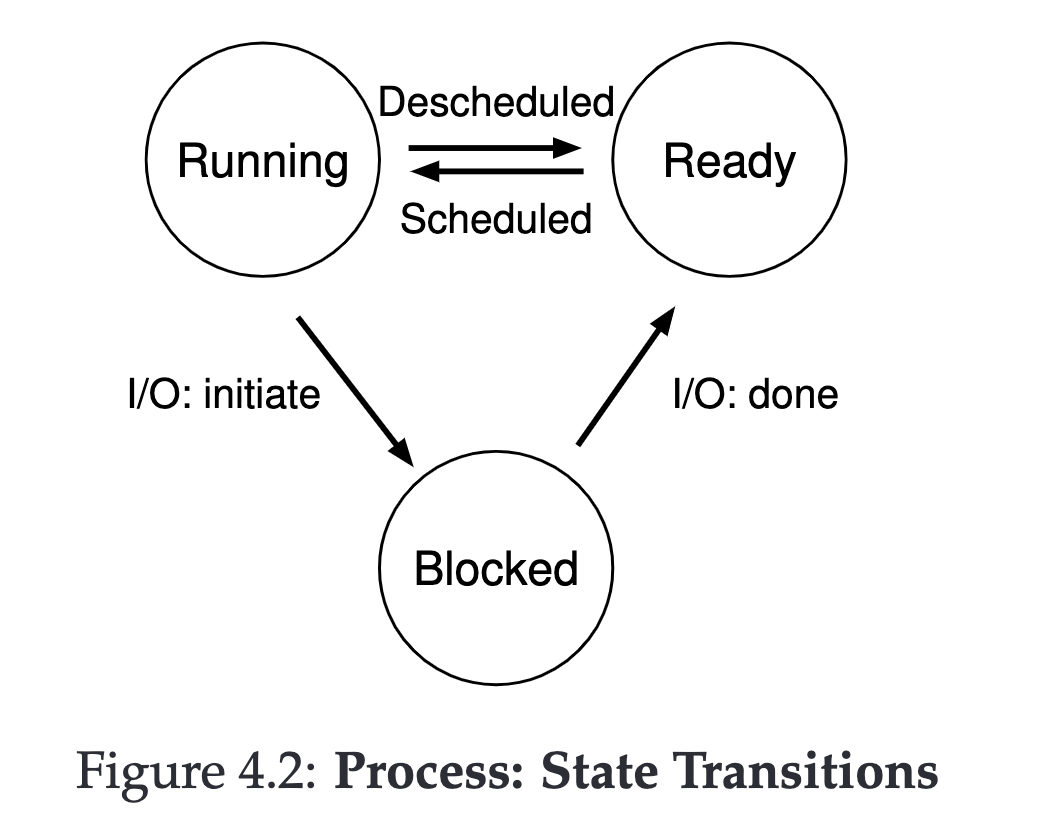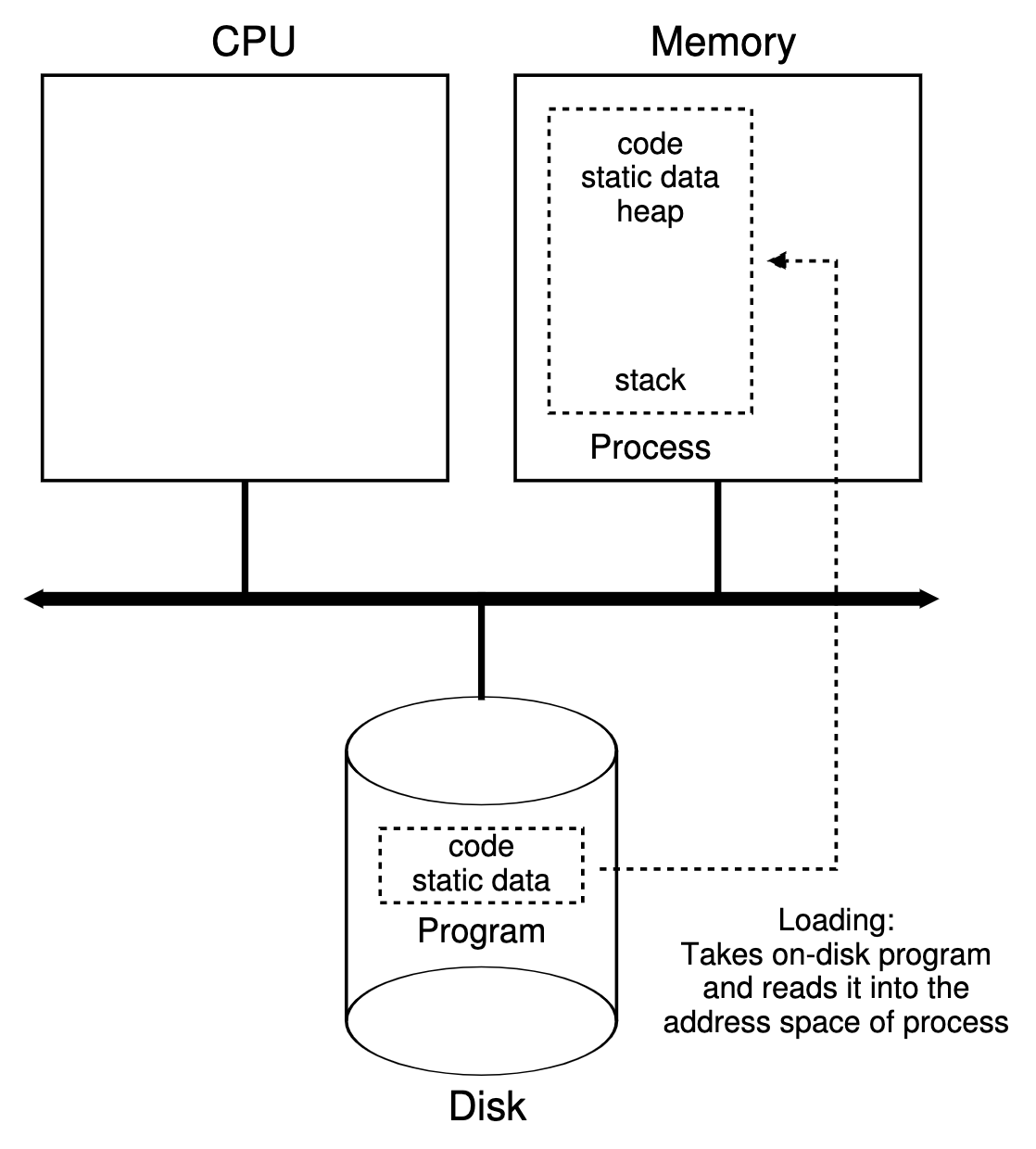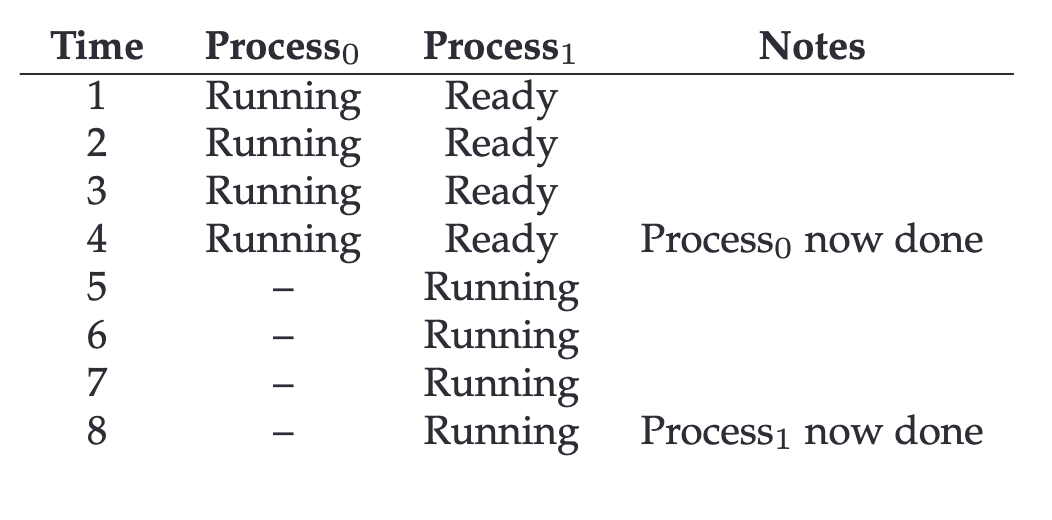OSTEP 第四章:Process 重點整理
·286 字·2 分鐘
目錄
核心問題:如何讓電腦同時擁有很多 CPU 的假象?
在解決這個問題前,我們先認識幾個東西。
Program #
什麼是 Program ? #
Program 是我們寫下的 code ,尚未被執行的 code 。
Process #
什麼是 Process ? #
Process 是執行中的 Program (running program)。
從程式的角度,你也可以把它看成是一個可以被建立、使用的物件。
// the registers xv6 will save and restore
// to stop and subsequently restart a process
struct context {
int eip;
int esp;
int ebx;
int ecx;
int edx;
int esi;
int edi;
int ebp;
};
// the different states a process can be in
enum proc_state { UNUSED, EMBRYO, SLEEPING,
RUNNABLE, RUNNING, ZOMBIE };
// the information xv6 tracks about each process
// including its register context and state
struct proc {
char *mem; // Start of process memory
uint sz; // Size of process memory
char *kstack; // Bottom of kernel stack
// for this process
enum proc_state state; // Process state
int pid; // Process ID
struct proc *parent; // Parent process
void *chan; // If non-zero, sleeping on chan
int killed; // If non-zero, have been killed
struct file *ofile[NOFILE]; // Open files
struct inode *cwd; // Current directory
struct context context; // Switch here to run process
struct trapframe *tf; // Trap frame for the
// current interrupt
};
Process API #
作業系統將 Running program 抽象成一個 Process;作業系統也針對 Process 提供了一些有用的 API 方便讓我們可以操作。
- Create
- Destory
- Wait
- Miscellaneous Control
- e.g., suspend or resume
- Status
- 查詢狀態
後面章節會討論一些真正的 Process API
Process 狀態 #
真實世界中 Process 有許多種狀態,我們這裡指舉例幾個
- Running
- Ready
- Blocked
Process 的狀態可以因不同事件而切換

Program 是如何變成 process 的呢? #

- 作業系統會把 Program(code, static data) 從硬碟裡讀出來並載入到記憶體裡
- 初始化 stack (e.g., local variables, function parameter, retrun address, etc…)
- 初始化 heap
- 初始化相關的 I/O (如果需要的話)
- CPU 執行指令
分時機制(time-sharing) #
分時機制的基本概念是短時間內先執行了 Process A 暫停,然後執行 Process B 。如此反覆。
因為 CPU 的執行速度太快 (1 ms),以至於讓使用者以為,許多任務都是同時執行的。

挑戰 #
Context switch #
在不同的 Process 之間轉換 OS 會需要儲存、載入一些資訊好讓 CPU 知道需要執行哪一個 Process 。
這中間也會有不小的消耗,如何在多工與效率間平衡點,就顯得相當重要。
控制權 #
當 CPU 在執行 Process 的時候,就代表作業系統沒有被執行(作業系統也可以理解成一個 running program),那如何在執行其他程式時,適時的把控制權交還給作業系統?